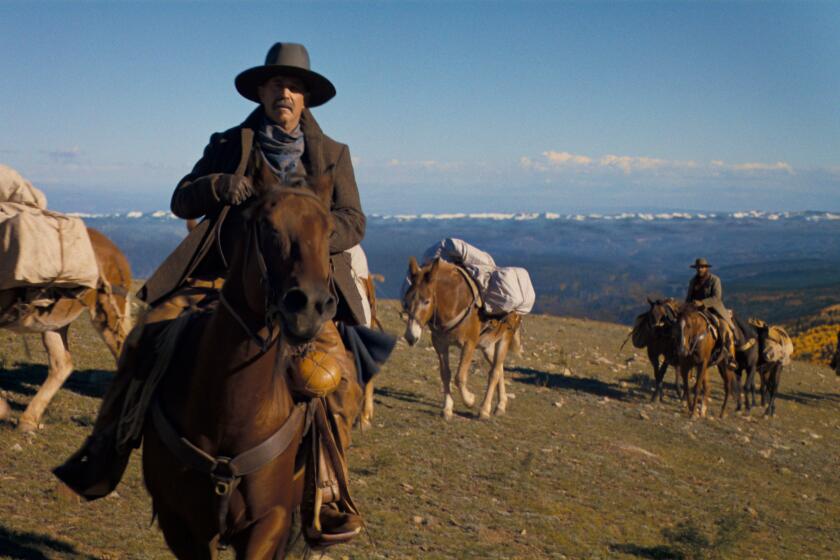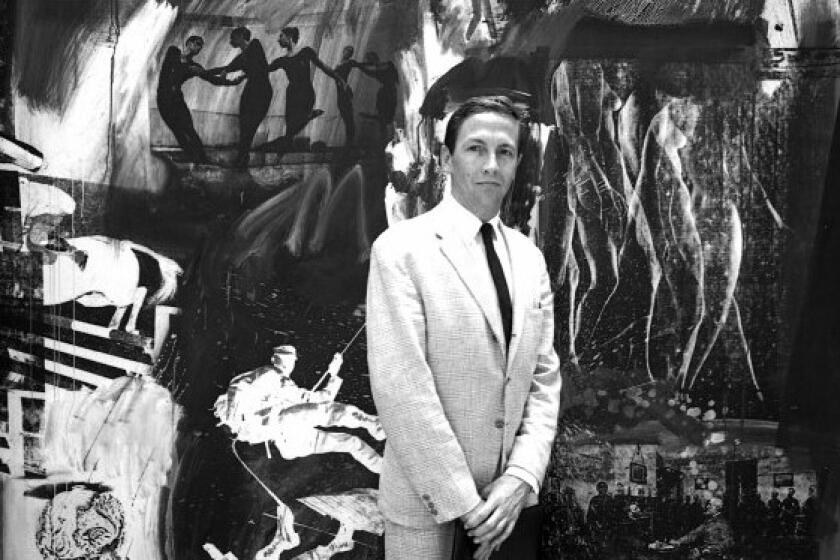Global Lens tries to put it all in focus
If the worldwide underground is a largely untapped aquifer rich in songs and stories, the weeklong Global Lens film festival kicking off today and running through June 2 at the Roy and Edna Disney CalArts Theater is a fortuitous conduit that funnels it onto a local cinema screen.
Since it debuted at New York City’s Museum of Modern Art 18 months ago, the festival has embarked on a 12-city tour. The traveling collection of modest treasures, sometimes shot in defiance of local laws, was cobbled together patiently, by combing film festivals from Rotterdam to Ouagadougou.
The lineup features the work of 10 filmmakers from countries including Israel, Tajikistan and Brazil, in a mix assembled with an eye for regional balance and universal relevance, says Susan Coulter, the curator of the festival and chairwoman of the organization behind it, the Global Film Initiative. “We wanted to give voice to edgier filmmakers from the developing world who have a different perspective, but most of all we wanted to give voice to the stories that they all feel so compelled to tell.”
“Ticket to Jerusalem,” for example, follows a Palestinian projectionist navigating the West Bank’s draconian system of checkpoints to set up screenings of cartoons for children living in refugee camps.
With its camcorder visuals and natural sound, the film is a potent blend of documentary and fiction, and it gives a taste of chaos and humiliation, of the multiple indignities of life under occupation but also of tenderness and normality.
“It is a very small, simple and realistic story about a very complicated situation,” says Rachid Masharawi, the exiled Palestinian director who shot the film in the second year of the current intifada, or uprising, in the occupied territories.
“Our real, daily life is more like fiction. You look out the window and you see tanks, you see bombing, you are under curfew. Those of us who were born and grew up in Palestine have to scale a wall to go anywhere. And the wall is sometimes right in front of our doors.”
Shooting the film entailed flouting travel restrictions imposed on the Palestinian population and filming it on the sly. The Israeli army checkpoints featured in the film are real, and the scenes staged there were not only shot without permission but also at great personal risk for those involved. The crew posed as broadcast journalists from France, and the actors merged into the passing current of people. Masharawi, who is originally from Gaza, says he normally would not be allowed to travel to West Bank cities like Ramallah or Jerusalem without permission from Israeli authorities. He pretended to be a day worker or even a Jewish settler.
“I made an entire film that, according to the Israelis, is illegal,” he says by phone from Paris, where he now lives. “If at any time while shooting they had asked me for my ID, I would be in jail, and then thrown back to Gaza. I was lucky, because it never happened.”
Perhaps because of its sense of danger and realism, the film is compulsively involving. So are other entries, including Yamina Bachir-Chouikh’s “Rachida,” which takes place in an Algeria where putting on lipstick is a political act, and a young, pretty female teacher who refuses to be swept by the tide of terrorism in her country is victimized by a militant gang among her own students.
How familiar the complaint of the teacher, Rachida, must ring to anybody resentful about being dragged into a cycle of violence and death: “All I wanted was to live .... “ Like a revolutionary pamphlet marred by occasionally crooked print, “Rachida” is crude but powerful in its sincerity and passion.
“Women’s Prison” is an equally passionate statement from Persian female director Manijeh Hekmat -- and is as suspenseful as the ‘50s American prison-flick classic “Brute Force,” although it remains banned in Hekmat’s native Iran.
Coulter acknowledges such political hurdles as a source of inspiration for the filmmakers she selects. “Political turmoil creates angst of one sort or another -- fear of terror, a sense of isolation. And that can be a point of genesis. But the stories themselves are not heavy-handedly political. Sometimes filmmakers are simply compelled to honor a parent or transfer local myths to the medium of cinema.”
Despite its nihilistic title, “Nothing,” from Cuban director Juan Carlos Cremata Malberti, is a giddy, hyper-stylized experiment in postmodern malaise and features a protagonist who could well be the Caribbean soul sister of Jean Seberg’s character in “Breathless.”
On the other hand, Brazilian director Renato Falcao’s “Margarette’s Feast” will bring to mind the innocence and pathos of Charlie Chaplin’s silent movies -- maybe because it has no dialogue, was shot in gorgeous black and white, and is deeply tragicomic.
The fest strives to stir in its audiences emotions beyond aesthetic appreciation.
With screenings scheduled for high school students, the project has an educational aspect too. “We have an entire generation of high school students -- and in many instances high school teachers -- who have never seen a subtitled film,” Coulter says. “And we can’t wait to correct that.”
*
Global Lens
Where: REDCAT, 631 W. 2nd St., Walt Disney Concert Hall, downtown L.A.
When: Tonight, Wednesday, and Friday through June 2
Price: $8
Contact: (213) 237-2800 or www.redcatweb.org
More to Read
Only good movies
Get the Indie Focus newsletter, Mark Olsen's weekly guide to the world of cinema.
You may occasionally receive promotional content from the Los Angeles Times.






